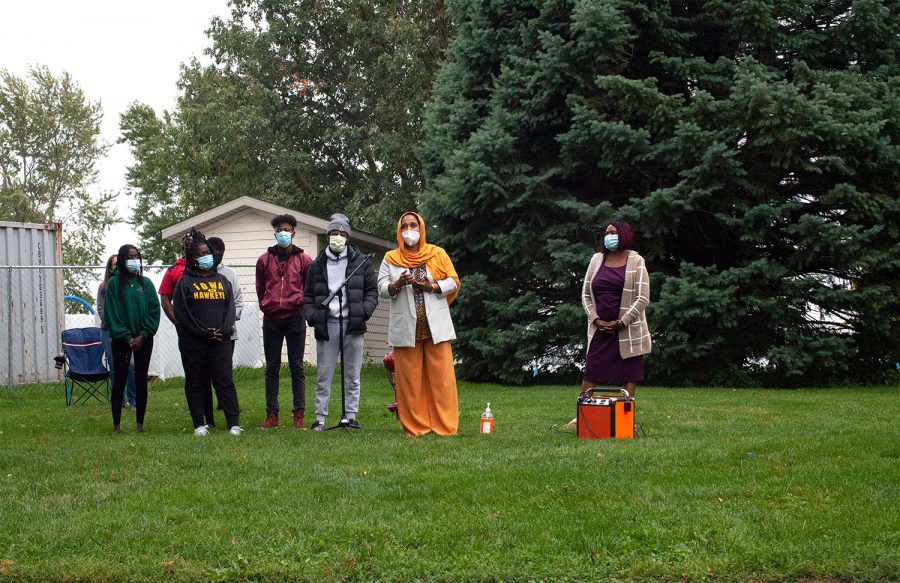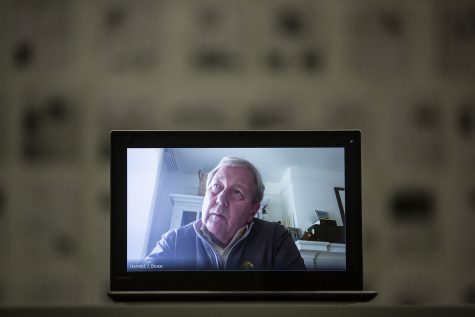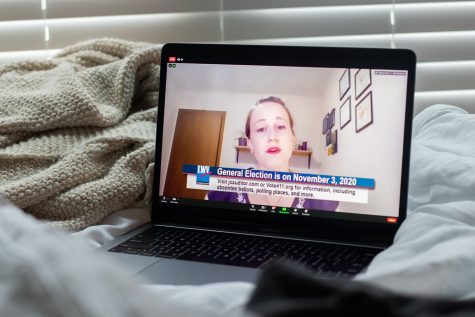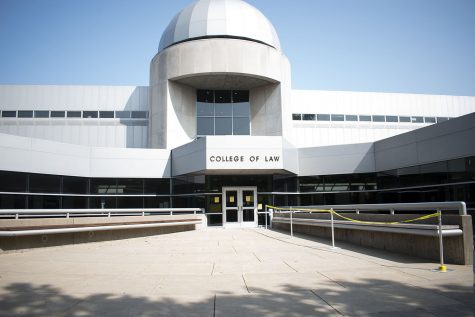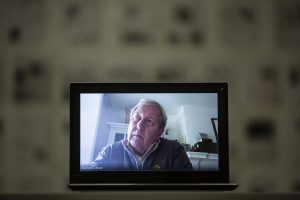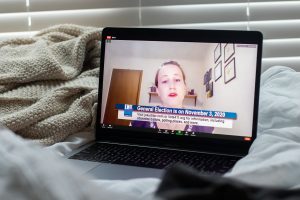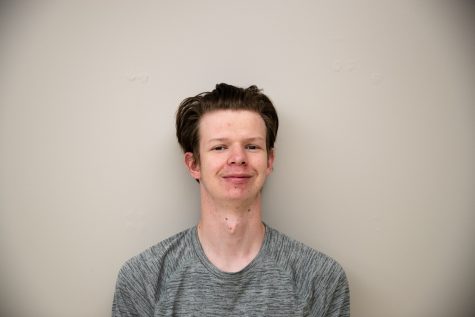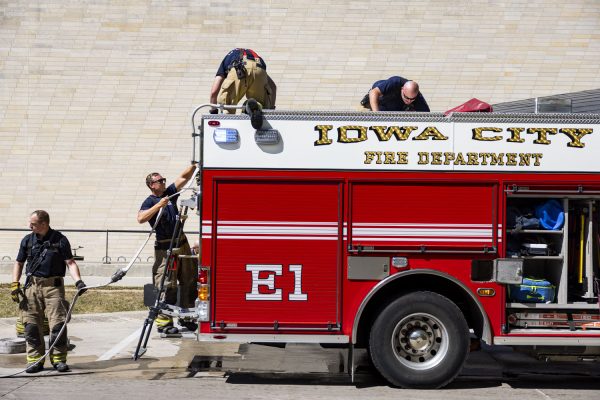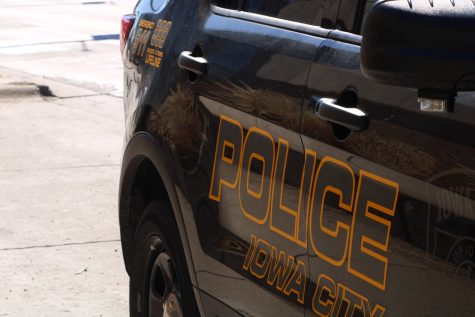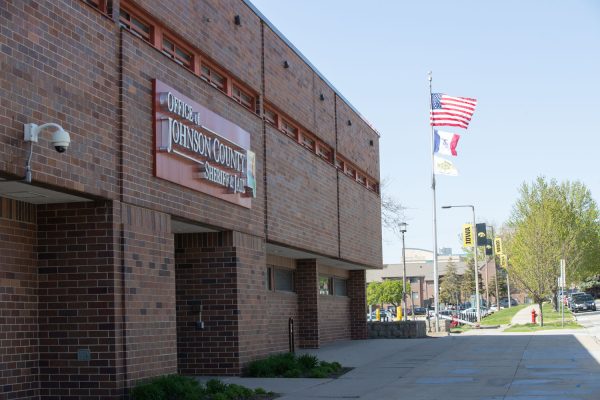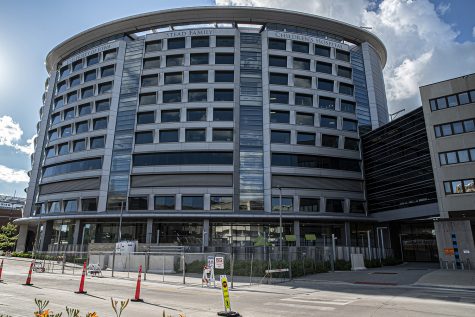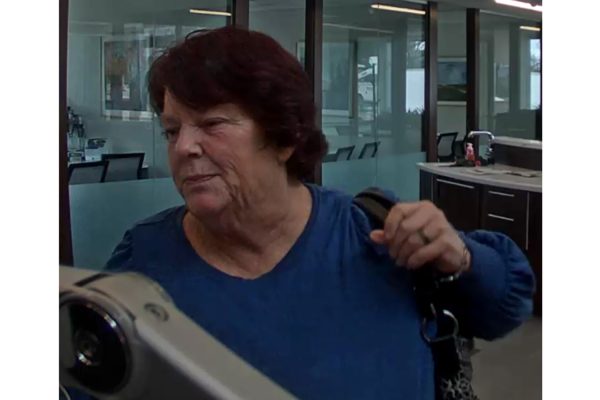Fourth community listening post discusses sexual, domestic assault intervention
Several sexual violence intervention organizations, along with the Iowa City Police Department, talked with the community about how they would improve their response to sexual violence in the community
Multilingual advocate and coordinator Wangui Gathua (far right) spoke out on behalf of NISAA African Family Services at The Community Listening Post in Wetherby Park on September 29,2020. This Community Listening Post created opportunities for Iowa City residents to talk about police reform and sexual assault.
September 29, 2020
Related: https://dailyiowan.com/2020/09/26/usg-partners-with-city-council-for-listening-post-on-community-policing-and-students/
The fourth community listening post on improving community policing focused on how to improve sexual violence intervention, with representatives from community organizations and the Iowa City Police Department making an appearance.
Many members of the community made their voices heard at the event held at Wetherby Park, including leaders and members of the Domestic Violence Intervention Program (DVIP); the Rape VIctim Advocacy Program (RVAP); Nisaa African Family Services; a sergeant and sexual assault investigator with the Iowa City Police Department; and several unaffiliated Johnson County residents.
“Our biggest goal we have is collaborating with other programs; we know we can’t do it ourselves,” Executive Director of DVIP Kristie Fortmann-Doser said.
She said last year DVIP served 1,877 individuals, but that the COVID-19 pandemic caused less people to use the program’s services than they had anticipated. It caused other problems, as well, she said, as the program was forced to depopulate its shelters.
Fortmann-Doser said that DVIP has been working closely with the ICPD over the last 20 years to improve how victims of sexual violence are treated by law enforcement.
“One of the steps that has been taken in the last month… is the city has approved for the police department to hire a social worker to provide victim-counselor support,” Fortmann-Doser said.
The social worker would be a liaison that would help connect victims more quickly to resources in the community, she said.
Fortmann-Doser said while about 30 percent of the crime ICPD responds to is related to domestic violence, that only makes up 10 percent of the services utilized by DVIP.
“So, we know there is a whole population that is not being serviced,” Fortmann-Doser said.
Iowa City Police Department Sergeant Scott Stevens, who has spent seven years of his law enforcement career as a domestic violence investigator, said over the last year, the ICPD responded to between 800 and 900 domestic disputes, as well as 85 to 95 sexual assaults.
He said it was important to work with the community to ensure these victims are served well, and that the police department plans to continue and improve upon its partnerships, including its partnership with the UI school of social work.
“I’ve heard victims’ services say the client was more comfortable talking to the social worker, than the police officer,” said Stevens.
Coordinator for NISAA said a multi-faceted response to sexual and domestic violence that incorporates support from all over the community is important.
Gathua said NISAA specifically works to address gender-based violence in African populations in Iowa in order to eradicate violence in all communities, coordinating with 28 allies in Johnson County.
Gathuas said she recognizes that certain communities might distrust organizations that do not share similar identities, and that’s why it’s important to have many different resources available for all members of the community.
“If a couple is fighting, they might be afraid to call the police, because they’ve learned from a long time that if they call the police somebody might get shot,” Guthua said.
Guthua added that one lawyer decided to stop volunteering for NISAA because the lawyer didn’t understand the cultural background of the clients.
One sexual violence survivor, Amel Ali, shared her experiences with the forum, questioning the distribution of resources that goes into these investigations.
She said that the detective she worked with was communicative, but she was critical of where the police department was putting its efforts.
”I feel upset when I see protesters getting arrested for vandalism; they’re making all these efforts for that even when there is a felony sexual assault warrant out [for my assailant],” Ali said.



